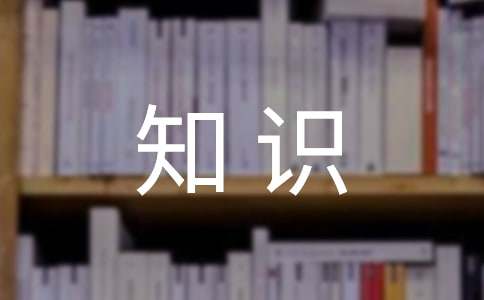- 相關(guān)推薦
關(guān)于句法的基礎(chǔ)英語知識
要想學(xué)會英語,其中句法很重要。下面是關(guān)于句法的基礎(chǔ)英語知識,為大家提供參考。

一、陳述句
(一)肯定句:是指用肯定的語氣來陳述的句子,如:I‘m a student. She is a doctor. He works in a hospital.
There are four fans in our classroom. He will eat lunch at 12:00. I watched TV yesterday evening.
(二)、否定句:含有否定詞或表示否定意義詞的句子,如:I‘m not a student. She is not(isn‘t) a doctor.
He does not (doesn‘t) work in a hospital. There are not (aren‘t) four fans in our classroom. He will not (won‘t) eat lunch at 12:00. I did not (didn‘t) watch TV yesterday evening.
二、疑問句
(一)一般疑問句:是指詢問事實的句子,此類句子必須用―yes‖,或―no‖來回答。
(二)特殊疑問句:以特殊疑問詞(what , where , who , which , when , whose , why , how等)開頭引導(dǎo)的句子。此類句子應(yīng)該問什么就答什么,不能用―yes 、no‖來回答。
(三)There be句型
There be 句型與have, has的區(qū)別:
1、There be 句型表示:在某地有某物(或人)
2、在there be 句型中,主語是單數(shù),be 動詞用is 主語是復(fù)數(shù),be 動詞用are 如有幾件物品,be 動詞根據(jù)最*近be 動詞的那個名詞決定。
3、there be 句型的否定句在be 動詞后加not , 一般疑問句把be 動詞調(diào)到句首。
4、there be句型與have(has) 的區(qū)別:there be 表示在某地有某物(或人);have(has) 表示某人擁有某物。
5、some 和any 在there be 句型中的運(yùn)用:some 用于肯定句, any 用于否定句或疑問句。
6、and 和or 在there be句型中的運(yùn)用:and 用于肯定句, or 用于否定句或疑問句。
7、針對數(shù)量提問的特殊疑問句的基本結(jié)構(gòu)是:
How many + 名詞復(fù)數(shù) + are there + 介詞短語? How much + 不可數(shù)名詞 + is there + 介詞短語 ?
8、針對主語提問的特殊疑問句的基本結(jié)構(gòu)是: What‘s + 介詞短語?
【句法的基礎(chǔ)英語知識】相關(guān)文章:
基礎(chǔ)英語知識講座08-18
英語基礎(chǔ)語法知識大全08-02
小學(xué)英語基礎(chǔ)知識07-22
小學(xué)英語基礎(chǔ)知識大全07-05
基礎(chǔ)英語知識點大全06-10
5大基礎(chǔ)英語語法知識10-04
小學(xué)英語語法基礎(chǔ)知識06-13